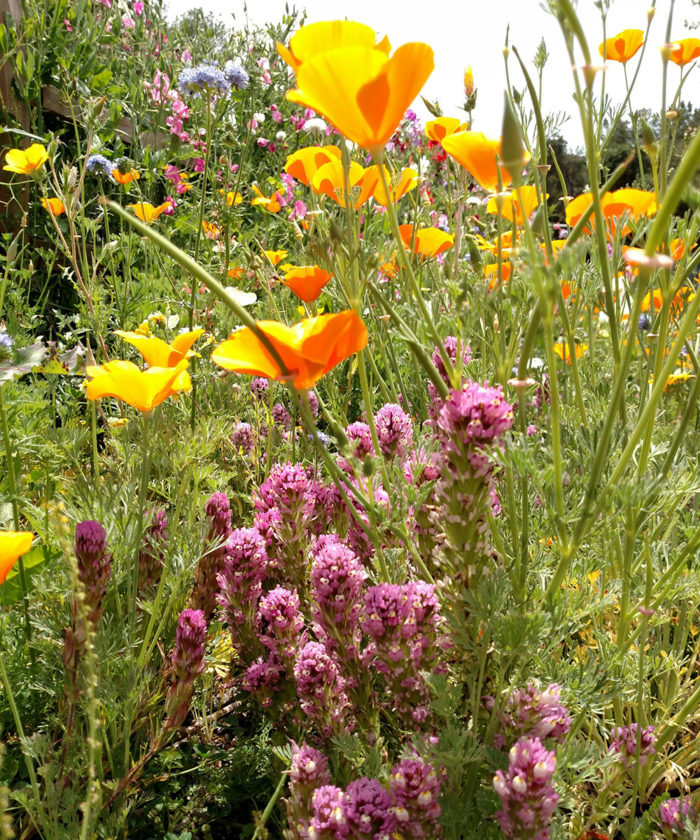
You may have heard the term “regenerative” as it applies to farming. Regenerative agriculture is the conservation of land through processes that improve our soil, preserve our water, and enhance biodiversity. These processes often mimic those found in nature, and with a shift of behavior, farmers can lessen and ultimately eliminate their dependence on pesticides and fertilizers. Regenerative practices not only apply to agriculture systems; they can also be brought home to our own gardens.
Positive soil practices are the foundation of gardening regeneratively. Creating and using compost is a key place to start, but there are other practices we can also put into action to enhance our soil and sustain the ecosystem. Here are some regenerative gardening principles you can follow in your own garden.

Keep the soil covered
Our soil is full of precious microorganisms that are sensitive to sunlight and drought. This can be particularly true in Southern California, with our extreme summer temperatures and low rainfall. Keeping your soil covered—be it with plants, straw, mulch, compost, or another organic material—is a great way to ensure that your little microorganisms are tucked in, safe from the sun and with moisture retained. Read here for more information about covering the soil with mulch:
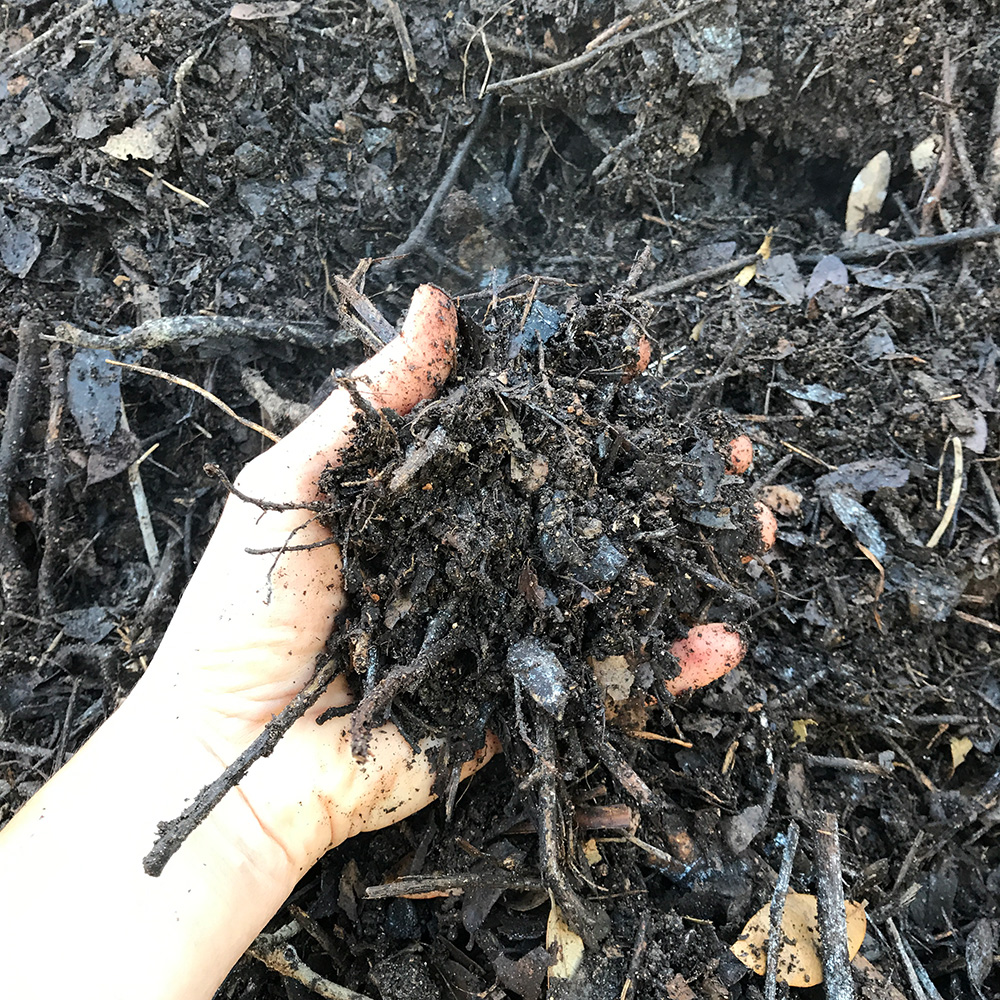
Avoid tilling and turning soil
This principle can be a tough one to adopt at first. I had gotten so accustomed to turning my soil before planting that it was difficult to accept that I was actually doing more harm than good. But the soil is alive with natural systems at work and is sensitive to disturbance, so put the fork and rototiller away.
Going no-till means that instead of turning in compost and amendments, you simply top-dress them. Instead of tearing spent plants out, you cut them out just above the root zone, leaving the valuable rhizosphere in place and carbon intact. I know, this sounds too easy! But I have noticed a few things since adopting the “no-till” practice in my veggie beds. I’ve seen more worms, fewer weeds (because turning the soil just exposes dormant weed seeds to the sun), and tougher plants.
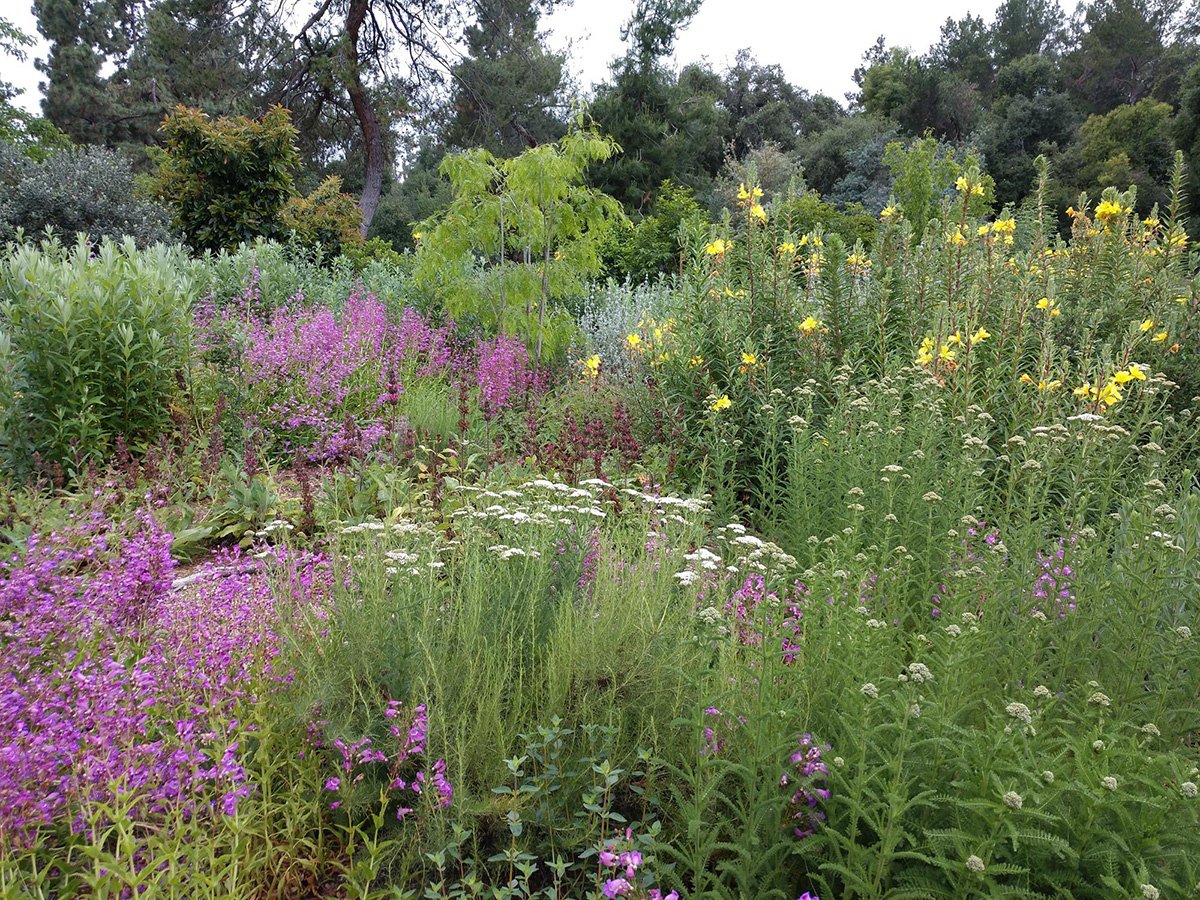
Diversity is strength
A garden or farm full of diversity in plant material will invite a wide array of beneficial insects and pollinators, strengthening its overall resiliency. This resiliency will ultimately not require pesticides. So go ahead and diversify your plant palette. More diversity in soil life will also in turn bring resiliency to the plants, as we respect their natural symbiotic relationships with the soil. Learn more about attracting pollinators and strengthening diversity here:
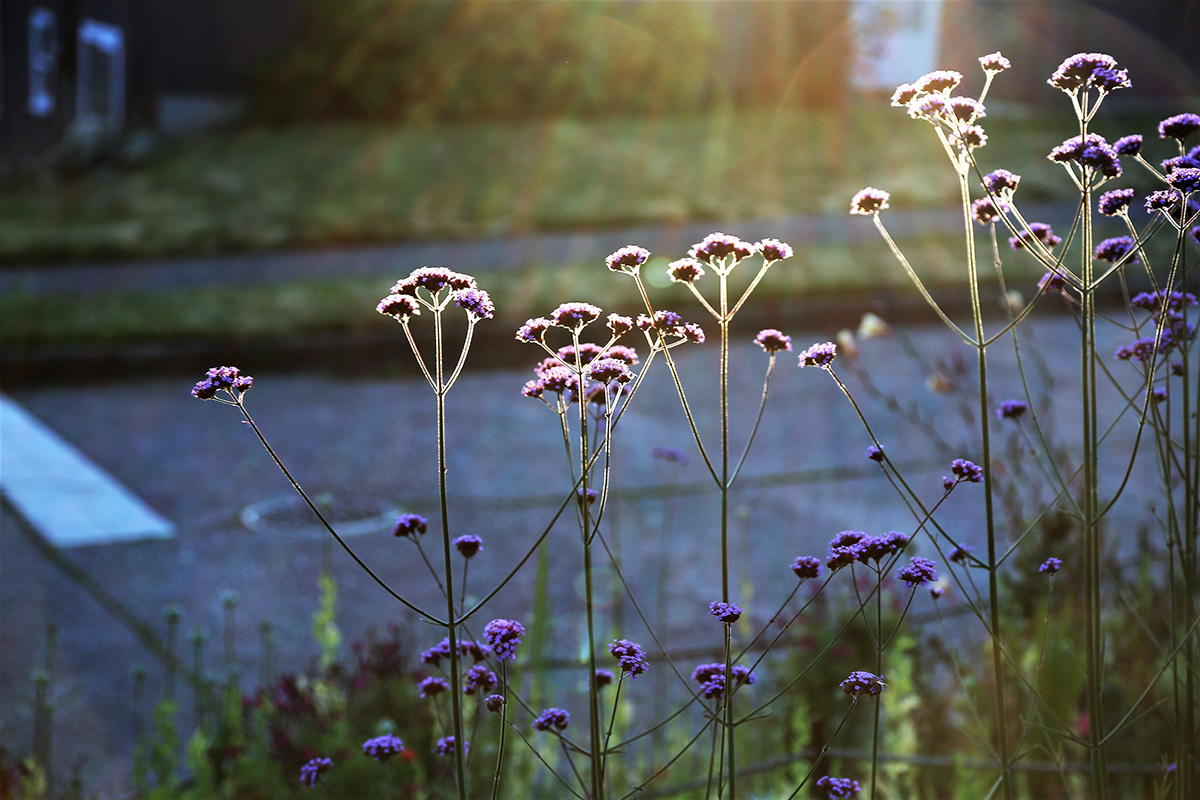
Embrace self-sowers
Keeping an ecologically diverse and regenerative garden means accepting a less tidy appearance to your garden. Deadheading flowers may not be at the top of your to-do list as you leave the seeds for birds to enjoy and the plants to reseed on site. Try tall verbena (Verbena bonariensis, Zones 7–11) or tall evening primrose (Oenothera elata, Zones 7–11). Have fun researching flowers that will reliably self-sow, offering more food for pollinators.
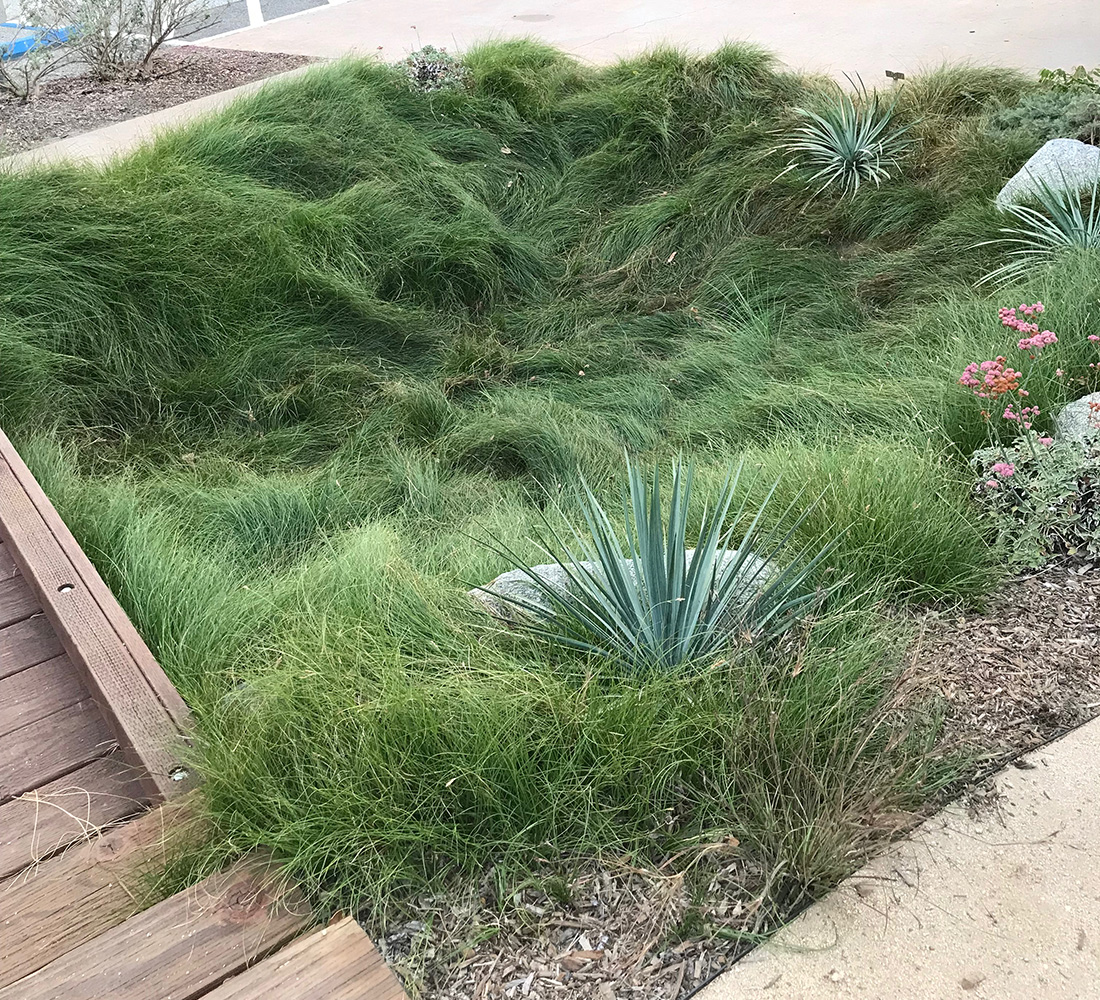
Conserve water
This is extremely important in Southern California. There are many ways to reduce your water consumption, including planting natives and low-water Mediterranean-climate plants. You can also switch irrigation over to drip or low-flow heads. Of course, don’t forget about mulching. But an often overlooked water conservation method is swale building. A swale is a depression formed to catch rainwater or overflow. We can strive to keep our water on site by observing how water flows and creating these catch basins or swales in our gardens. Learn more on catching water on site here:
—Cara Hanstein is a head gardener at the Huntington Library, Art Museum, and Botanical Gardens in San Marino, California.
Fine Gardening Recommended Products
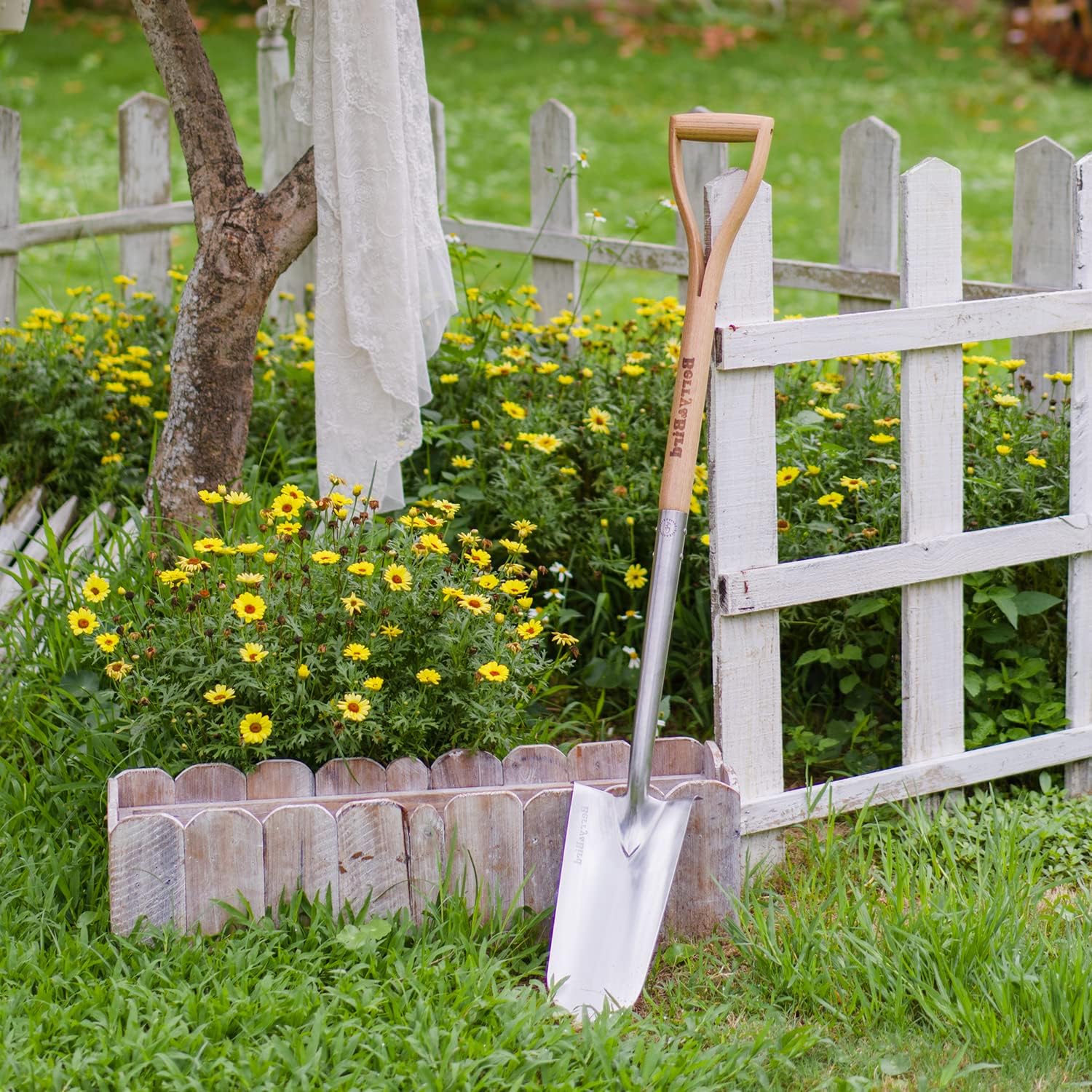
Berry & Bird Rabbiting Spade, Trenching Shovel
Fine Gardening receives a commission for items purchased through links on this site, including Amazon Associates and other affiliate advertising programs.
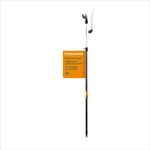
Fiskars 7.9-12ft Extendable 2-in-1 Pole Tree Trimmer & Pruner with Rotating Head and Precision-Ground Steel Saw Blade
Fine Gardening receives a commission for items purchased through links on this site, including Amazon Associates and other affiliate advertising programs.
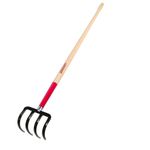
Razor-Back Potato/Refuse Hook
Fine Gardening receives a commission for items purchased through links on this site, including Amazon Associates and other affiliate advertising programs.





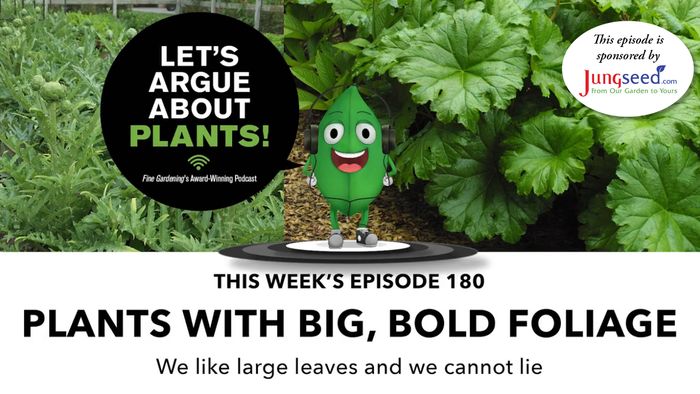

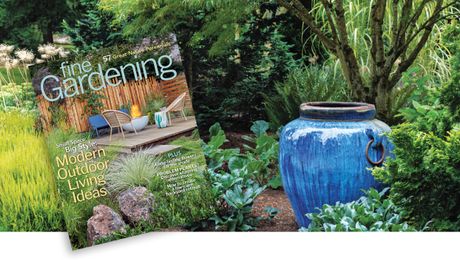










Comments
Log in or create an account to post a comment.
Sign up Log in